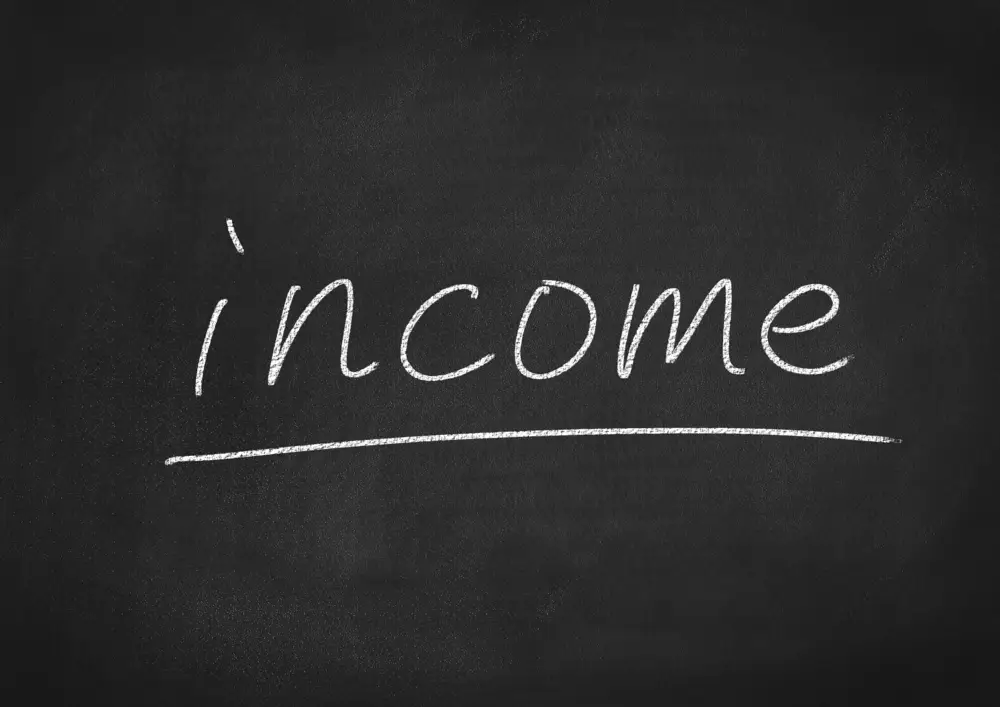Do You Save Money by Buying Smart? A Guide to Practical Spending
Good shopping decisions could help your financial status. Not merely about saving money, smart buying is about maximizing value and making sure every dollar you spend advances your financial goals. Let’s consider do you save money by buying smart and how altering your buying behavior might help you avoid financial traps.
Understanding Smart Buying and Its Financial Benefits
What Does It Mean to Buy Smart?
Good buying is intentional premeditation before a purchase. It means studying your needs, giving quality first priority above volume, and lots of research. This approach assures that your purchases complement your long-term objectives and manner of living.
Purchasing smart also entails realizing the difference between frivolous spending and required costs. It’s not about deprivation but deliberately picking what enhances your life.
The Connection Between Spending Habits and Savings
Your ability to save depends much on your spending patterns. For example, impulse purchases can rapidly empty your money account. Conversely, disciplined spending lets you set aside money for investments, savings, and basic needs.
Effective stretching of your money depends on smart buying practices, including price comparison and avoidance of unneeded items. These behaviors build up over time into large savings that can be used toward certain financial objectives.
Common Myths About Smart Shopping
Many people think that buying wisely solely implies buying inexpensively. False is how this is. The value should be your first concern, even though cost counts. Still, another fallacy is that smart purchasing takes time. It becomes second nature with the correct tools and routines.

Evaluating Purchases for Maximum Savings
How to Differentiate Between Wants and Needs
Sort your possible buys first. Your survival and well-being depend on needs, including food, housing, and medical treatment. Wants are goods or services that improve your comfort or status but are not essential.
Before you go shopping, determine your top priorities. This will enable you to concentrate on what counts and prevent indulging in purchases of goods unrelated to your objectives.
The Role of Research in Smart Shopping
Research is vital before making any purchase. Search for substitutes, comparisons of products, and reviews. Knowledge helps you to make wise decisions and resist the influence of marketing strategies.
Think about things like dependability, client happiness, and durability. Usually, a well-considered purchase helps you avoid regret and, later on, extra costs.
Comparing Prices and Finding Deals
A basic first step in wise buying is price comparison. Compare pricing among stores using web tools and apps. Many sites simplify this process, like Google Shopping and PriceGrabber.
Remember to hunt for promo codes, coupons, and discounts as well. During holidays or clearance events, retailers sometimes have better prices.
Smart Shopping Strategies to Save Money
Planning Purchases to Avoid Impulse Buying
One of the main challenges in saving money is impulse shopping. Always shop with a list to help offset this. A well-defined strategy helps you stay concentrated and less likely to add pointless products to your basket.
Wait twenty-four hours before making non essential purchases. This cooling-off phase lets you assess whether the item really belongs in your life.
Leveraging Discounts, Coupons, and Cashback Offers
Cashback and coupon offers help to drastically lower the buying cost. Register for reward programs or cashback apps like Rakuten or Honey to maximize your discounts.
Before making internet purchases, always look for promo codes. Many websites and browser extensions compiled these codes for simple access.
Timing Your Purchases for Seasonal Sales
Many times, retailers have regular sales cycles. For Black Friday, for example, gadgets are lowered; furniture is less expensive at year-end sales. Plan your purchases for around these occasions to find the best offers.
When Buying in Bulk Saves You Money
Pros and Cons of Bulk Purchases
Though it’s not always the greatest option, buying bulk can save money per unit. Less shopping visits and less packaging expenses are among the advantages. The cons include the possibility of waste if things are not used before expiration.
Before large purchases, evaluate your consumption rate and storage capacity. Make sure the savings exceed possible drawbacks, including waste or spoiling.
Items Worth Buying in Bulk
There are some things perfect for bulk purchases. Often, the best value is found in non-perishable pantry basics household needs like toilet paper and cleaning products. Avoid large purchases of perishable items if you can use them right away.
Avoiding Waste with Bulk Purchases
Carefully plan your large purchases. Stow goods in sealed containers to maximize their shelf life. Share large purchases with friends or family to cut waste and save collectively.

The Importance of Quality Over Quantity
How Investing in Quality Saves Money Long-Term
Often, cheap items need regular replacements, which increases expenses over time. Making excellent investments guarantees improved performance and durability, which helps you save money over time.
For instance, a good pair of shoes could be more expensive upfront but last years longer than a cheaper substitute.
Recognizing False Economy in Cheap Purchases
A false economy results from putting value second to cost. For example, purchasing low-quality goods on sale could look like a great bargain but would cost more in repairs or replacements down the road.
Tips for Evaluating Product Quality
Before you buy, look over materials, artistry, and reviews. Look for brands with stellar customer service and durability. Search for warranties or certifications assuring quality.
Budgeting for Smarter Purchases
Setting Financial Limits for Each Purchase
Before you start shopping, determine how much you can afford to spend; a budget helps control your money.
Tracking Spending to Stay Within Budget
Use apps like Mint or PocketGuard to monitor your spending. Regular tracking lets you detect patterns and change your budget as needed.
Using Budgeting Tools for Better Control
Budgeting instruments streamline financial handling. They track goals, classify expenses, and provide analysis to enable you to decide how best to spend.
Using Technology to Make Informed Buying Decisions
Price Comparison Apps and Websites
PriceRunner and ShopSavvy apps let you compare costs across several outlets. This guarantees the finest bargain without more work.
Reading Reviews and Ratings
Customer comments and ratings offer insightful analysis of the performance of a product. Search for thorough assessments stressing both advantages and disadvantages.
How to Spot Fake Reviews Online
Watch out for bogus evaluations. Search for repeated linguistic patterns or comments that are too general. Verify purchase badges to find real comments.

Smart Shopping for Different Needs
Saving Money on Groceries and Essentials
Schedule your meals to prevent overbuying. For reasonably priced substitutes, stay to a list and give store brands some thought.
Buying Smart for Household Items
Choose energy-efficient appliances or multipurpose cleaning products to reduce costs and increase sustainability.
Tips for Smart Clothing Purchases
Emphasize classic designs and sturdy fabrics. Shop thrift stores for quality at less cost or during end-of-season bargains.
Avoiding Common Spending Mistakes
Falling for Marketing Gimmicks
Many times, marketing strategies cause one to feel falsely urgent. Steer clear of falling for lines like “limited time only” without first confirming the deal’s worth.
Overlooking Hidden Costs
Before you buy, budget for taxes, shipping expenses, or maintenance. These might greatly affect the overall cost.
Neglecting to Plan for Long-Term Use
Select items that will meet your future demands. For example, purchasing a tiny appliance that cannot meet rising demand will cost more in replacements.
Inspiring Stories of Smart Buyers
Real-Life Examples of People Who Saved Big
Many people have changed their financial situation by wise shopping. For instance, a family cuts food expenses by thirty per cent using meal planning and coupons.
Lessons Learned from Strategic Shopping
These legends underline the need for discipline, investigation, and patience. Observing others could motivate you to improve your buying behaviour.
Staying Motivated to Shop Smartly
Celebrate little victories like staying within your budget or spotting a fantastic offer. These achievements inspire you and confirm good behaviours.

Conclusion: Making Smart Buying a Habit
Recap of Key Strategies for Saving Money
Smart shopping calls for preparation, investigation, and value prioritizing. Improve your decision-making with technology and budgetary tools.
Encouragement to Adopt Smarter Shopping Practices
Start with one tactic and then expand from there using little adjustments in your spending patterns to result in major savings.
Final Thoughts on Financial Wellness Through Smart Purchases
Smart buying is a road, not a destination. Making wise decisions can help you reach financial stability and mental tranquillity.
FAQs:
- How can I save money by buying smart? Emphasize investigating, organizing, and using discounts to make wise buys.
- What are the best tools for smart shopping? Help might come from review sites, coupon websites, and price comparison applications.
- Should I always choose quality over price? Indeed, by lowering replacement costs, investing in quality usually results in long-term financial savings.
- Is buying in bulk always a good idea? Not always; before making bulk purchases, evaluate your storage capacity and the product consumption probability.
- How can I avoid impulse purchases? Make and follow a shopping list; allow yourself time to weigh nonessential goods.



